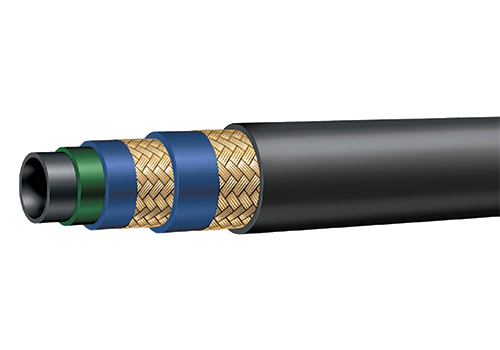Durable Rubber Oil Hose for Efficient Fluid Transfer and Automotive Applications
Aug . 19, 2024 01:01 Back to list
Durable Rubber Oil Hose for Efficient Fluid Transfer and Automotive Applications
Exploring the Significance of Rubber Oil Hoses in Modern Industry
In the realm of industrial applications, the importance of rubber oil hoses cannot be overstated. These specialized hoses are essential for the safe and efficient transportation of various types of oil and hazardous fluids in a myriad of sectors, including automotive, manufacturing, and fuel distribution. The design and functionality of rubber oil hoses offer significant advantages that enhance operational efficiency and safety, making them a critical component in many industries.
Composition and Design
Rubber oil hoses are typically constructed from high-quality rubber compounds that are reinforced with materials like textiles or steel to provide added strength and durability. This construction is crucial as it allows the hoses to withstand high pressure and resist wear and tear caused by exposure to oils and other chemicals. The inner linings of these hoses are formulated to be compatible with different types of oils, whether they are petroleum-based or synthetic. The outer layer is designed to be resistant to abrasion, UV radiation, and environmental factors, ensuring a long service life even in demanding conditions.
The flexibility of rubber oil hoses is another significant feature. Unlike rigid piping systems, rubber hoses can be maneuvered easily, making them ideal for connecting machinery or reaching difficult locations. Their flexibility also aids in minimizing stress on the hose, thereby reducing the risk of leaks or ruptures.
Applications Across Industries
Rubber oil hoses find applications in a wide range of industries. In the automotive sector, they are indispensable in systems that require the transfer of fuel, oil, and hydraulic fluids. Properly functioning rubber hoses ensure that vehicles operate efficiently and safely, reducing the risk of leaks that can lead to serious accidents or environmental hazards.
rubber oil hose

In the manufacturing industry, rubber oil hoses are utilized to transport oils and lubricants necessary for machinery operation
. These hoses help maintain the lifecycle of equipment by delivering essential fluids that ensure machines run smoothly. Moreover, they are used in hydraulic systems, facilitating the transmission of power to various components.The oil and gas sector also heavily relies on rubber oil hoses for the transfer of crude oil, refined products, and other fluids during exploration, drilling, and transportation processes. Their resilience to high pressures and wide temperature ranges makes them suitable for harsh operating conditions often encountered in this field.
Safety Considerations
Safety is a paramount concern when dealing with oil transfer and storage. Rubber oil hoses are designed with safety features such as burst resistance and anti-static properties. Regular inspections and maintenance are crucial to ensure their integrity over time. Companies often implement strict protocols regarding the installation and replacement of these hoses to prevent accidents that could result in spills or fires.
As technology continues to advance, the manufacturing of rubber oil hoses is also evolving. Innovations such as improved rubber formulations and enhanced reinforcement techniques are enhancing the performance and safety of these hoses. Furthermore, environmental regulations are pushing manufacturers to produce hoses that are more sustainable and eco-friendly.
Conclusion
In summary, rubber oil hoses play a vital role in the efficient and safe transport of oils and hazardous fluids across various industries. Their robust design, flexibility, and resistance to a wide range of environmental factors make them indispensable tools for modern industrial operations. As industries continue to grow and evolve, the importance of reliable and high-quality rubber oil hoses will only continue to increase, ensuring that safety, efficiency, and performance remain at the forefront of industrial practices.
